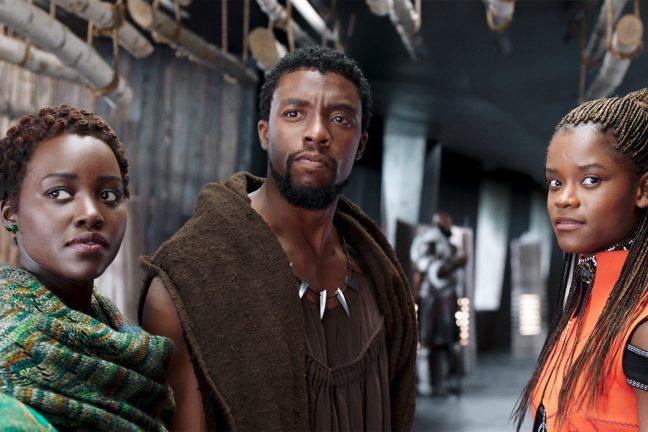The National Civil Rights Museum in Memphis juts out at sharp angles in stark contrast to the otherwise uninhibited view of the surrounding city. It’s perhaps the gravitas of what the museum stands for, coupled with the pleasantly warm Tennessee climate, which makes the building welcoming rather than daunting.
Its relevance is unquestionable. April 4 will mark the 50th anniversary of Martin Luther King, Jr.’s assassination at the former Lorraine Motel, which now serves as the center from which the museum spreads out. Back then, the inimitable Sidney Poitier was the only African-American to hold the distinction of winning an Academy Award. But the highest-grossing film of at least this past weekend is “Black Panther,” the cast of which is a who’s who of black actors.
The Ryan Coogler-directed film (“Fruitvale Station,” “Creed”) continues the story of T’Challa, played by Chadwick Boseman (“Marshall,” “42“), who succeeds his assassinated father as King of Wakanda. But he grapples with being a “good man” more so than being a good Black Panther. Judging by the introductory stunts though, he doesn’t encounter much trouble with the latter.
The reality of the scenes in Oakland, California and the fiction of the scenes in Wakanda, enmeshed with villainous turns from Andy Serkis (“Lord of the Rings,” “Planet of the Apes”) and Michael B. Jordan (“Fruitvale Station,” “Creed”), ground the movie’s conflicts and warring ideologies to make it more realistic than its Marvel counterparts. “Iron Man” grappled with war profiteering but Robert Downey, Jr.’s charisma detracted from that political debate. “Captain America: The Winter Soldier” posed serious questions about peremptory nullifications of potential security threats, but the movie’s outlandish climax detracted from quite literally anything that preceded it.
Black Panther, replete with questions about the generational fallout of slavery and the debate between isolationism and international engagement, offers anti-heroes rather than antagonists. They don’t travel through wormholes to conquer New York but rather possess motivations that are perhaps more justifiable than those of the eponymous hero himself.
And therein lie the movie’s greatest achievement and its greatest failing. It places an African nation as the most advanced in thought and technology but chooses to imbue most of its central cast with Trumpian isolationism and preservation tendencies that detract from the momentous moment of having such a star-studded cast of black actors (and indeed women who play truly impactful characters) in a blockbuster. It wouldn’t be amiss, then, to root for Jordan and Killmonger’s motivations, if not his means.
But it is perhaps too critical to expect so much from such an unprecedented movie. For all the political and social hoo-ha surrounding the choice of actors and accolades bestowed upon Marvel for promoting a non-white superhero, Black Panther is, first and foremost, a popcorn movie. It is more “Casino Royale,” less “All the President’s Men.” The criticisms leveled against the movie, most notably in Christopher Lebron’s Boston Review article, are eloquent and deserving of measured consideration.
But detailed character development and thoughtful scriptwriting work together within the movie’s two-hour time frame. Within the context of the wider Marvel universe, it puts forth the rarest of rarities — an enjoyable film.
Admirers of Black Panther must not confuse what they want the film to be with what it actually is — intelligent entertainment, with authentic casting choices and authentic minority portrayals — which should lay the groundwork for a change in traditional Hollywood representations. At the very least, Martin Luther King, Jr. and Poitier would be proud.


